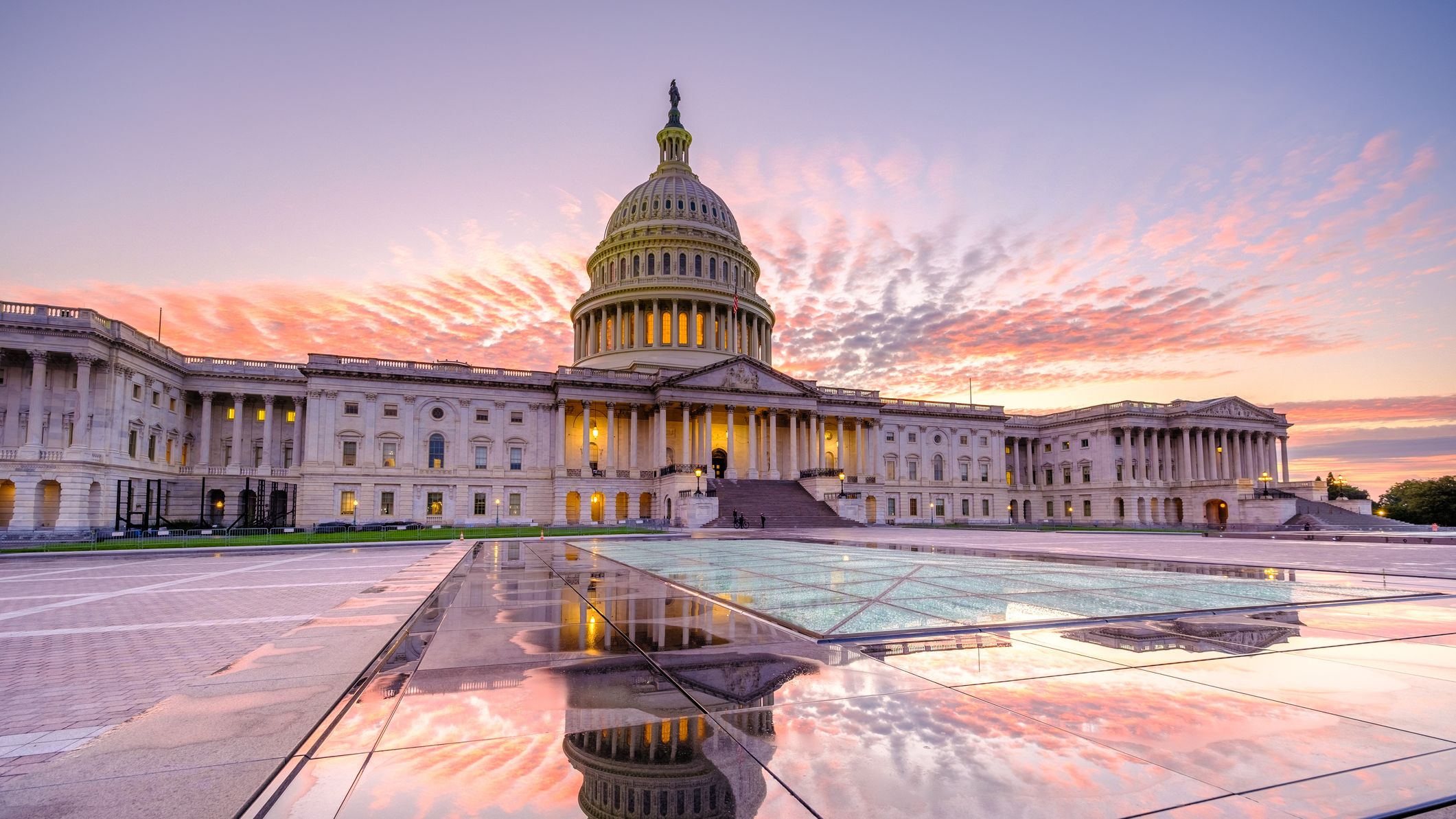US law passed forcing companies to report cyber attacks, ransomware payments
Operators of critical infrastructure will face a subpoena for failing to report cyber incidents


Legislation aiming to force critical infrastructure companies to declare when they have experienced a cyber attack was approved by the Senate on Friday.
The cross-party provision, authored by US senators Gary Peters and Rob Portman, aims to enhance the nation’s ability to combat ongoing cyber security threats against critical infrastructure.
It passed the Senate as part of government funding legislation and the last step it faces is being signed into law by President Biden.
The provision requires critical infrastructure owners and operators to report to CISA within 72 hours if they’re experiencing a substantial cyber attack, and within 24 hours of making a ransomware payment.
It also gives CISA the authority to subpoena entities that fail to report cyber security incidents or ransomware payments. Organisations that fail to comply with the subpoena can be referred to the Department of Justice.
The provision also requires CISA to launch a programme that warns organisations of vulnerabilities that ransomware actors exploit. It also directs CISA’s director to establish a joint ransomware task force to coordinate federal efforts, in consultation with industry, to prevent and disrupt ransomware attacks.
The Homeland Security and Governmental Affairs US Senate Committee said that once signed into law, the provision will mark a significant step to help the US combat potential cyber attacks sponsored by foreign adversaries, including online threats from the Russian government in retaliation for US support in Ukraine.
Get the ITPro daily newsletter
Sign up today and you will receive a free copy of our Future Focus 2025 report - the leading guidance on AI, cybersecurity and other IT challenges as per 700+ senior executives
“This provision will create the first holistic requirement for critical infrastructure operators to report cyber incidents so the federal government can warn others of the threat, prepare for widespread impacts, and help get our nation’s most essential systems back online so they can continue providing invaluable services to the American people,” said senator Peters, chairman of the committee. “Our provision will also ensure that CISA – our lead cyber security agency – has the tools and resources needed to help reduce the impact that these online breaches can have on critical infrastructure operations.”
CISA director Jen Easterly said the organisation applauds the passage of cyber incident reporting legislation, calling it a game-changer. She underlined that CISA will now have the data and visibility it needs to help better protect critical infrastructure and businesses across the country from cyber attacks.
RELATED RESOURCE

The best defence against ransomware
How ransomware is evolving and how to defend against it
“CISA will use these reports from our private sector partners to build a common understanding of how our adversaries are targeting U.S. networks and critical infrastructure,” said Easterly. “This information will fill critical information gaps and allow us to rapidly deploy resources and render assistance to victims suffering attacks, analyse incoming reporting across sectors to spot trends, and quickly share that information with network defenders to warn other potential victims.”
The US has been seeking to bolster its cyber defences, as in February it announced it would consider proactively disrupting cyber criminals’ operations even if doing so might impede the state’s ability to arrest and indict the alleged perpetrators. The measures it is considering include providing decryptor keys to ransomware victims or even seizing servers used to launch cyber attacks.
Zach Marzouk is a former ITPro, CloudPro, and ChannelPro staff writer, covering topics like security, privacy, worker rights, and startups, primarily in the Asia Pacific and the US regions. Zach joined ITPro in 2017 where he was introduced to the world of B2B technology as a junior staff writer, before he returned to Argentina in 2018, working in communications and as a copywriter. In 2021, he made his way back to ITPro as a staff writer during the pandemic, before joining the world of freelance in 2022.
-
 Bigger salaries, more burnout: Is the CISO role in crisis?
Bigger salaries, more burnout: Is the CISO role in crisis?In-depth CISOs are more stressed than ever before – but why is this and what can be done?
By Kate O'Flaherty Published
-
 Cheap cyber crime kits can be bought on the dark web for less than $25
Cheap cyber crime kits can be bought on the dark web for less than $25News Research from NordVPN shows phishing kits are now widely available on the dark web and via messaging apps like Telegram, and are often selling for less than $25.
By Emma Woollacott Published
-
 ‘Phishing kits are a force multiplier': Cheap cyber crime kits can be bought on the dark web for less than $25 – and experts warn it’s lowering the barrier of entry for amateur hackers
‘Phishing kits are a force multiplier': Cheap cyber crime kits can be bought on the dark web for less than $25 – and experts warn it’s lowering the barrier of entry for amateur hackersNews Research from NordVPN shows phishing kits are now widely available on the dark web and via messaging apps like Telegram, and are often selling for less than $25.
By Emma Woollacott Published
-
 Healthcare systems are rife with exploits — and ransomware gangs have noticed
Healthcare systems are rife with exploits — and ransomware gangs have noticedNews Nearly nine-in-ten healthcare organizations have medical devices that are vulnerable to exploits, and ransomware groups are taking notice.
By Nicole Kobie Published
-
 Alleged LockBit developer extradited to the US
Alleged LockBit developer extradited to the USNews A Russian-Israeli man has been extradited to the US amid accusations of being a key LockBit ransomware developer.
By Emma Woollacott Published
-
 February was the worst month on record for ransomware attacks – and one threat group had a field day
February was the worst month on record for ransomware attacks – and one threat group had a field dayNews February 2025 was the worst month on record for the number of ransomware attacks, according to new research from Bitdefender.
By Emma Woollacott Published
-
 CISA issues warning over Medusa ransomware after 300 victims from critical sectors impacted
CISA issues warning over Medusa ransomware after 300 victims from critical sectors impactedNews The Medusa ransomware as a Service operation compromised twice as many organizations at the start of 2025 compared to 2024
By Solomon Klappholz Published
-
 Warning issued over prolific 'Ghost' ransomware group
Warning issued over prolific 'Ghost' ransomware groupNews The Ghost ransomware group is known to act fast and exploit vulnerabilities in public-facing appliances
By Solomon Klappholz Published
-
 The Zservers takedown is another big win for law enforcement
The Zservers takedown is another big win for law enforcementNews LockBit has been dealt another blow by law enforcement after Dutch police took 127 of its servers offline
By Solomon Klappholz Published
-
 There’s a new ransomware player on the scene: the ‘BlackLock’ group has become one of the most prolific operators in the cyber crime industry – and researchers warn it’s only going to get worse for potential victims
There’s a new ransomware player on the scene: the ‘BlackLock’ group has become one of the most prolific operators in the cyber crime industry – and researchers warn it’s only going to get worse for potential victimsNews Security experts have warned the BlackLock group could become the most active ransomware operator in 2025
By Solomon Klappholz Published